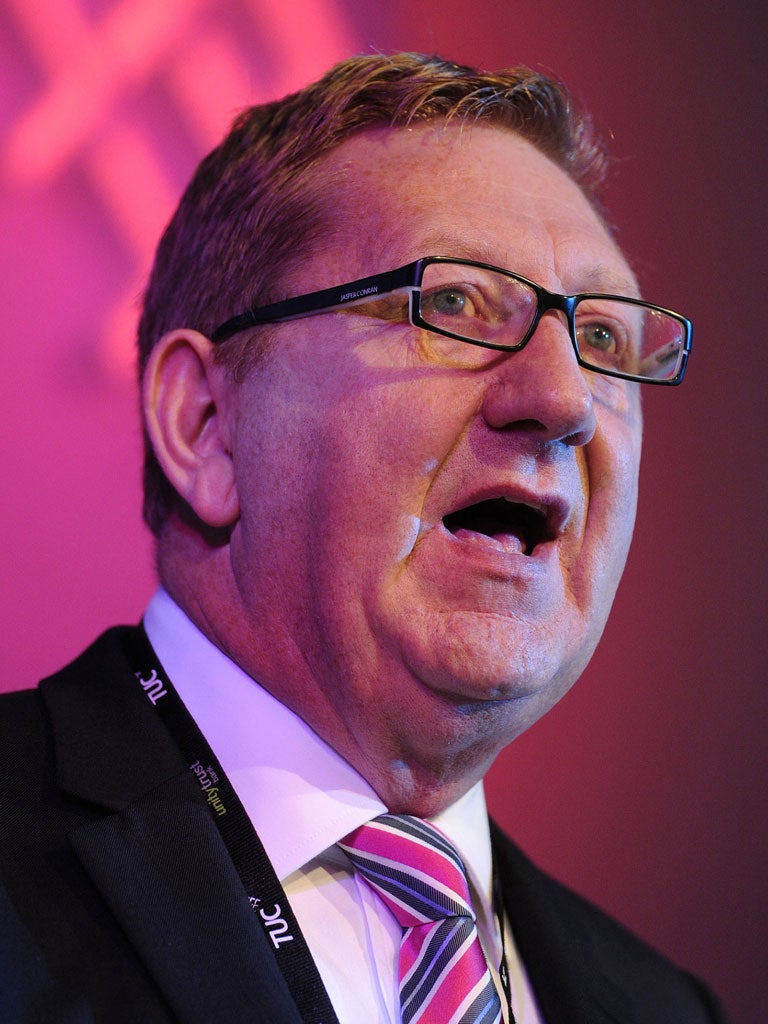Diary: Did the PM start a fuel frenzy for no good reason?

Now that it has got the nation's motorists queuing in the forecourts, it is important for the Government that other actors in the drama play their allotted roles. The head of the Unite trade union, Len McCluskey, has been cast as the Arthur Scargill of our day, Ed Miliband as the weak leader who takes Unite's money but cannot stop it causing mayhem, and the Daily Mail has added in the "embarrassing" fact that the union official who is handling the tanker drivers' grievances is Diana Holland, the treasurer of the Labour Party.
Ms Holland recently wrote to the Energy Secretary, Ed Davey, protesting about the language ministers are using to suggest that Unite is trying to foment a strike, as if the tanker drivers' complaints about health and safety are something new. She gave a long list of government ministers who had been warned over the past two years that trouble was brewing.
The letter thanked Mr Davey for his "helpful recognition of Unite's commitment to ensuring emergency supplies" and asserted: "We want a negotiated solution..."
This raises some interesting questions. What if Unite convinces the independent conciliatory service that the drivers have a case? Suppose the talks succeed and there is no strike. How will ministers explain that to motorists who have queued for petrol and risked burning down their homes by storing it?
Ministers must be praying for Mr McCluskey or someone at Unite to say something resoundingly stupid because, if they don't, David Cameron could come out of this as the Prime Minister who started a fuel frenzy for no good reason.
Keeping morale high
Morale at The Sunday Times has been at an all-time high this week after the superb sting it pulled off against the Conservative Party's now former treasurer, Peter Cruddas, which puts the paper in line for a bouquet of journalism awards. But how can it follow a success like that? Here is a clue. In the last couple of days, every member of the Cabinet has received an email from a Sunday Times journalist putting the following questions:
"When was the last time you consumed a pasty, and where did you purchase it from?"
"Do you prefer to eat your pasty hot or cold?"
"How often would you estimate you eat pasties?"
"What is your favourite flavour of pasty? (for example, cheese and onion, curry, traditional Cornish etc.)"
"How many cars does your garage fit?"
"Do you own a jerry can?"
It should make for a gripping read.
Who is Lord Black of Crossharbour?
Poor old Lord Black of Crossharbour. Not only is the former multimillionaire owner of The Daily Telegraph languishing in a US prison cell – a victim, he says, of injustice – but the US public appears to have forgotten him. Contestants on Jeopardy!, which bills itself as America's favourite quiz show, were asked who Conrad Black is. None knew the answer.
Interpreting efficiencies
The idea of bringing in a private company to run a government service is to make it more efficient. Whether the court interpreter service has improved since January, when the Ministry of Justice outsourced it to Applied Language Solutions, is a matter of dispute.
The East Anglia Daily Times tells the story of a Vietnamese interpreter from Newcastle who got up at 3am to catch the train to Peterborough, where he changed trains to Ipswich to be in South East Suffolk magistrates' court by 10am. The hearing, into the case of Phuong Van Duong, who is accused of producing cannabis, began at 10.43, and was over at 10.51. The interpreter was then free to begin the other half of his 564-mile round trip.
Join our commenting forum
Join thought-provoking conversations, follow other Independent readers and see their replies
Comments
Bookmark popover
Removed from bookmarks